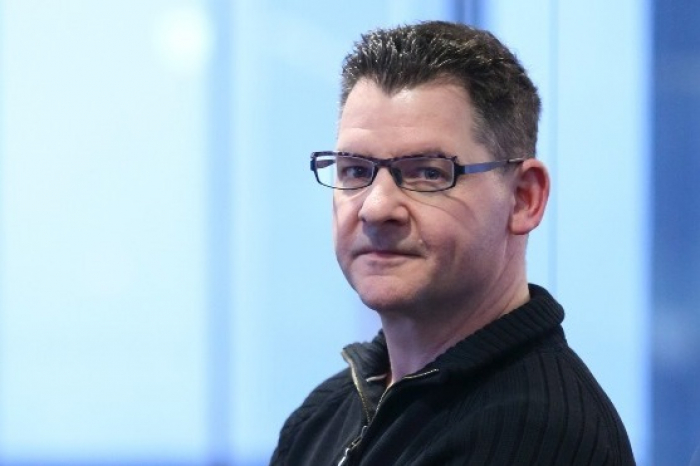
Rhee Chang-yong has made a big splash in less than two months as the Bank of Korea governor and I’m not the least bit surprised. Over the last decade, I’ve moderated several panel discussions involving Rhee -- in Japan, the Philippines, Kazakhstan and elsewhere. When you chair these public forums on a regular basis, you make mental notes of who provokes the liveliest and most stimulating debates. Rhee, a former top economist at the International Monetary Fund and Asian Development Bank, always had a place near the top of my list. The reasons why leave me optimistic that Rhee is the out-of-the-box thinker South Korea needs at the perfect moment.This is not meant to dismiss the skill with which Lee Ju-yeol ran the BOK from 2014 until his March 31 retirement. Or the 2010-2014 Kim Choong-soo era. If Asia’s fourth-biggest economy is blessed with anything, it’s solid central bankers. Smart and nimble BOK policymaking helped Korea confound naysayers abroad countless times these last 25 years. In 1997, it was first to recover fully from the Asian financial crisis. In 2008, Seoul humbled hedge funds thinking it might be the “next Iceland.” In 2013, it avoided the “taper tantrum.” In 2020, Korea proved that a smart response to COVID-19 is good economics. Last year, the BOK was the first major central bank to begin hiking interest rates. Even now, as US inflation surges, China stumbles and the Japanese yen cracks, Korea seems somewhat out of the global fray. William Pesek Yet Rhee is not getting a honeymoon as he takes command at BOK headquarters. And neither should new President Yoon Suk-yeol expect a period of harmony from the BOK. Rhee is already proving to be a uniquely outspoken governor on a range of issues BOK leaders tend to avoid. Since his confirmation in April, Rhee has talked up the need for reforms to increase Korea’s potential growth rate, devise new engines of job growth, increase flexibility in labor markets, reduce income inequality, address changes driven by an aging population and lower market barriers to improve living costs.All of these challenges are technically beyond the BOK’s purview. Rhee’s approach suggests Koreans may have more of a Paul Volcker-like policymaker on their hands speaking truth to power than a bookish economist who stays in their lane. Volcker was the larger-than-life chairman of the US Federal Reserve from 1979 to 1987. The outspoken economist came to the job with great gravitas. Volcker played the honest-broker role, telling lawmakers and presidents to do their jobs to make the economy more efficient. He did it tactfully, — often with a cigar in hand — but Volcker got his view across.When Alan Greenspan replaced Volcker at the Fed in 1987, he, too, cajoled government officials on taxes, trade policies and market regulations. We can debate whether unelected economists deserve such power. But Rhee’s more activist disposition could shake up Seoul politics for the better.It’s unclear what Yoon plans to do with Korea’s economy. His talk of “free democracy and a market economy” and “integration and prosperity” and a “virtuous cycle of sustainable development and fair welfare” sounds like a checklist of things consultants told him to say.Yoon’s heart seems to be in pumping up gross domestic product in the short run, not in retooling efforts to increase competitiveness 10 to 12 years from now. His focus on relaxing loan and tax regulations could fan inflation and exacerbate Korea’s household debt dilemma. Over the last 10-12 years, we saw three governments promising to raise Korea’s economic game come and go with few major reform wins. Surely, fans of Presidents Lee Myung-bak, Park Geun-hye and Moon Jae-in can point to upgrades on each government’s watch worthy of mention here. But generally, Koreans are still waiting for a Big Bang that generates more economic energy from the ground up, less from giant conglomerates towering over the nation. This was a window of opportunity Korea can never get back. As Yoon tries his hand at an economic legacy, could a policymaker like Rhee be the missing link? I don’t mean to exaggerate the importance of one person. But a respected and outspoken economist who spent the last several years outside Seoul could be just the wildcard that a change-averse political system needs. Having a BOK leader willing to call out complacency among the president’s team or lawmakers, brainstorm on ways to upgrade the economy and perhaps cut deals on policy could be a game changer. In the US, the Volcker-Greenspan era saw the Fed agree to go easier on rate hikes if politicians did their part to reduce debt, increase productivity and catalyze innovation. Yoon might find Rhee a powerful ally to make Korea’s next decade much more vibrant than the last. And to continue confounding the naysayers.By William PesekWilliam Pesek is an award-winning Tokyo-based journalist and author of Japanization: What the World Can Learn from Japan's Lost Decades. Previously, he was a columnist for Bloomberg and Barron’s.
Most Read